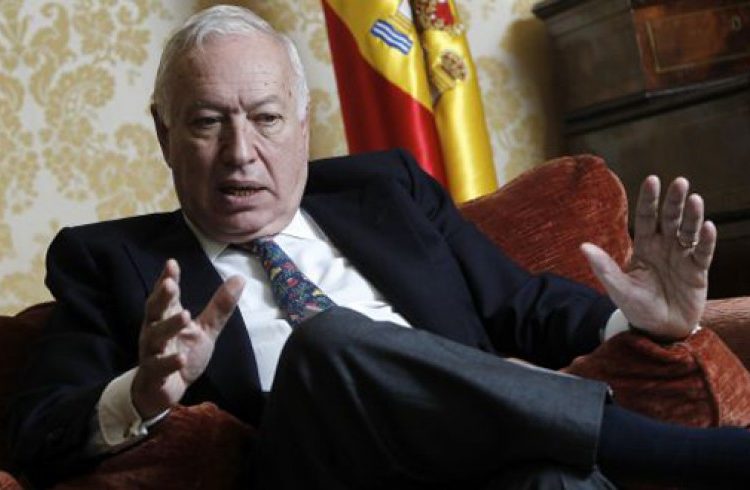The Minister of Foreign Affairs and Cooperation of Spain, José Manuel García-Margallo, said Monday that his country “must be present” in Cuba if it wants to “help” the Island “shape its future.” The senior official described the relations between the two nations as “very fluid” and said-during an interview on Onda Cero taken by Europe Press- that he will travel to Cuba because it “has changed dramatically.”
García-Margallo announced that he will be in Havana on November 24 and 25 and specified that “the situation has changed and when circumstances change is obvious that we must change the relationship,” reported El diario.es. He explained further that the trip has a “human component” because under the law of historical memory the number of Spaniards in the island has increased by 10, for which reason this is “extremely important” in commercial terms and as for investments.
“I requested two things, the release of a journalist, Martinez Ferrate, and the release of Carromero. And the two have been met, and I give you my word of honor that have been made without political consideration, “said the Minister, who said that in 1996 when the EU adopted the Common Position that conditioned any progress in relation to the human rights; Cuba was “isolated” while holding a key role today.
He recalled that the Cuban government for the first time will attend the Summit of the Americas to be held in Panama, where it will coincide with the United States; and that in his opinion another important event, the Iberoamerican Summit of Veracruz, “will revolutionize relations with Latin America.”
So, the past is the past, right?
In 1998, 16 years ago, Cuba proposed EU to have negotiations on an agreement on political dialogue and cooperation, but was rejected. In 1996, the Spanish Prime Minister Aznar, imposed, at a meeting of Finance Ministers of the EU, a unilateral policy, which affected the island and in 2003 , they attempted to impose sanctions that were answered with the rejection of all European cooperation with Cuba and the cancellation of the request for accession to the Cotonou Agreement on relations between the EU and Asia, Caribbean and Pacific, said the website of the Ministry of Foreign Affairs of Cuba.
In January 2005, the EU “temporarily suspended” those sanctions, in 2007 a Dialogue and Cooperation Agreement with the next government of Spain was signed, and in June 2008 the EU invited Cuba to a process of political dialogue. That year European Commissioner Louis Michel visited the Island and a Joint Statement for the restoration of cooperation was signed.
As a result 14 Member States of the EU signed bilateral cooperation agreements and MOUs for political exchanges with Cuba, fully reciprocal and respectful.
In March this year, the Minister of Foreign Affairs of Cuba, Bruno Rodríguez Parrilla, at a press conference at the headquarters of the Cuban Foreign Ministry shared on relations between the EU and Cuba including some interesting news that Cuba was been invited by the High Representative for Foreign Affairs and Security Policy of the European Union on February 10 to start negotiations on an agreement on political dialogue and cooperation with the EU, which was welcomed because it “means the end to unilateral policies on Cuba “.
In April, representatives of Havana and the EU concluded the first round of the Agreement for the establishment of dialogue for normalization of relations, Prensa Latina reported. Four months later, in August, the negotiating teams met in Brussels for the day to celebrate the second round.
Regarding relations between Cuba and Spain, according to information published by the Caribbean embassy in that country, over 50 Spanish companies, the Council of Chambers of Spain, the Chamber of Commerce of the Republic of Cuba and Cuban companies, participated in Havana at the twentieth session of the Committee on Business Cooperation Cuba-Spain. The session provided Cuban and Spanish entrepreneurs to hold bilateral meetings to further move on joint projects of mutual interest.










